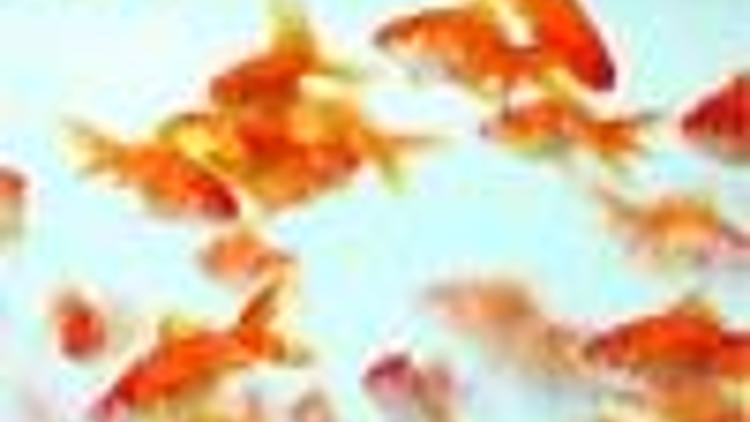Aquarium fish breeding dealt a huge blow by crisis
Güncelleme Tarihi:

Anatolia News Agency
Oluşturulma Tarihi: Haziran 22, 2009 00:00
İZMİR - Aquarium fish breeding, a hobby popular with the middle-income group in Turkey, has sustained major losses due to the global economic turmoil.
Between 1991 and 1995, Turkey sold 1.5 million fish annually. Sales started to drop due to various economic crises, and have deteriorated to 300,000 in the latest one, returning Turkey to the status it held in the 1980s when it comes to aquarium culture, said Ceyhun Kayalarlıoğulları, a partner in Ortadoğu Akvaryum, a firm based in Bergama, near the Aegean port city of İzmir. The firm has the world’s largest capacity in aquarium fish production.
The hobby is of particular interest to students, workers and retired people, Kayalarlıoğulları said, noting that both equipment and fish sales increased with its popularity surge in the 1990s.
Increasing sales and the country’s potential in the sector led the firm to establish a facility with an annual capacity of 200,000 fish, Kayalarlıoğulları said. In order to reduce imports, the firm started to produce 100 types of fish in 20 basic categories, he added.
According to Kayalarlıoğulları, each of the economic crises has lessened Turkish citizens’ interest in aquariums and reduced sales significantly. "The latest crisis has been the worst blow. The annual average sales of 1.5 million units dropped to 500,000 with the 2001 economic crisis and to below 300,000 with the latest turmoil," he said. "Winter is the most active season for the sector. Amid a climate of crisis, in which people feel concerns related to employment and the future, nobody thinks about fish or aquariums."
Since they have to operate constantly, aquariums also incur extra energy costs, so the recent years’ price hikes in energy have also played a role in people abandoning the hobby, Kayalarlıoğulları added.
Besides the economic problems, Kayalarlıoğulları said new technologies have drawn attention away from aquariums, especially among students, who have shifted their hobbies into the virtual realm as computers have come to constitute a substantial proportion of people’s lives. "Our main hope for the upcoming period is the consumer group that started this hobby in the 1990s but gave it up later," he said. "We know that this group, which is now around 35 years old, is still interested in aquariums. And we try to revive this hobby, which has a direct relation with per-capita income. We will be more hopeful as the Turkish economy overcomes the crisis."
Noting that aquarium fish face informal import problems, Kayalarlıoğulları said that firms import fish from Far East countries, particularly Singapore, but that many transfer 10 times more fish than the regular amount in order to pay less in bills. The government should launch a "per kilogram tax implementation" to prevent unfair competition, he said. As people prioritize commercial benefits, neither sellers nor consumers have a conscious approach to fish, making the death rate rather high, he added. "Unfortunately, many firms have prioritized earning money from equipment rather than fish," Kayalarlıoğulları said. "This approach has caused fish deaths, forcing many people to abandon the hobby."
Turks generally prefer goldfish and guppy fish, said Kayalarlıoğulları, who stressed increasing diversity as a way to survive the crisis.
The hobby is of particular interest to students, workers and retired people, Kayalarlıoğulları said, noting that both equipment and fish sales increased with its popularity surge in the 1990s.
Increasing sales and the country’s potential in the sector led the firm to establish a facility with an annual capacity of 200,000 fish, Kayalarlıoğulları said. In order to reduce imports, the firm started to produce 100 types of fish in 20 basic categories, he added.
According to Kayalarlıoğulları, each of the economic crises has lessened Turkish citizens’ interest in aquariums and reduced sales significantly. "The latest crisis has been the worst blow. The annual average sales of 1.5 million units dropped to 500,000 with the 2001 economic crisis and to below 300,000 with the latest turmoil," he said. "Winter is the most active season for the sector. Amid a climate of crisis, in which people feel concerns related to employment and the future, nobody thinks about fish or aquariums."
Since they have to operate constantly, aquariums also incur extra energy costs, so the recent years’ price hikes in energy have also played a role in people abandoning the hobby, Kayalarlıoğulları added.
Besides the economic problems, Kayalarlıoğulları said new technologies have drawn attention away from aquariums, especially among students, who have shifted their hobbies into the virtual realm as computers have come to constitute a substantial proportion of people’s lives. "Our main hope for the upcoming period is the consumer group that started this hobby in the 1990s but gave it up later," he said. "We know that this group, which is now around 35 years old, is still interested in aquariums. And we try to revive this hobby, which has a direct relation with per-capita income. We will be more hopeful as the Turkish economy overcomes the crisis."
Noting that aquarium fish face informal import problems, Kayalarlıoğulları said that firms import fish from Far East countries, particularly Singapore, but that many transfer 10 times more fish than the regular amount in order to pay less in bills. The government should launch a "per kilogram tax implementation" to prevent unfair competition, he said. As people prioritize commercial benefits, neither sellers nor consumers have a conscious approach to fish, making the death rate rather high, he added. "Unfortunately, many firms have prioritized earning money from equipment rather than fish," Kayalarlıoğulları said. "This approach has caused fish deaths, forcing many people to abandon the hobby."
Turks generally prefer goldfish and guppy fish, said Kayalarlıoğulları, who stressed increasing diversity as a way to survive the crisis.

